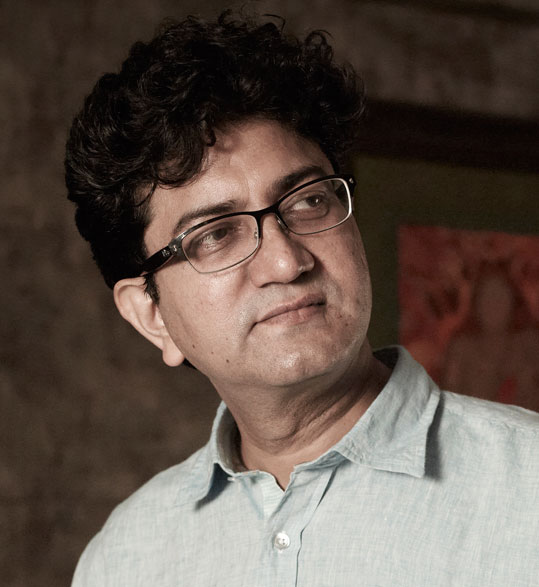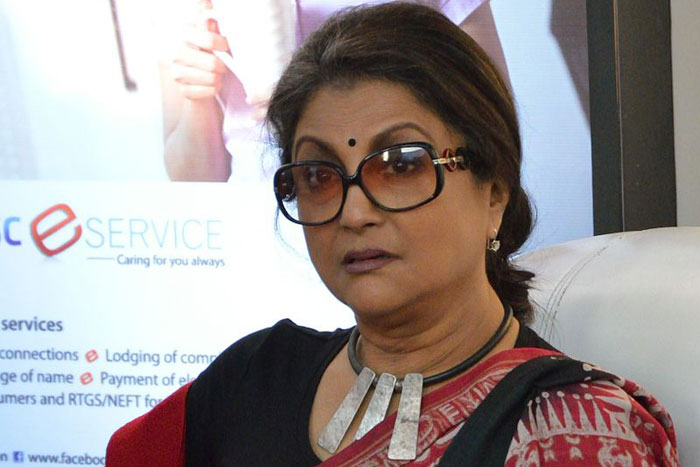Two letters from opposing ends have created a debate and raised larger issues. They have survived in a way few letters to the editor do; most disappear after the usual hiccup. The first was the one triggered by Aparna Sen, a plea to look at dissent differently. It emphasized that a critique of governance is not a critique of the nation and must be read differently. Responding to it was a more formidable letter signed by the media stars, Prasoon Joshi and Kangana Ranaut. It was not merely a defence of the Narendra Modi regime but a statement of what is permissible as politics. This essay is a response to its arguments.
For Joshi and his group, truth is one-sided. It is on the side of the nation state, the majority, it is a part of law and order, it cannot be maligned. Truth has to sustain a nation’s image and a prime minister’s reputation. In fact, truth is part of the PWD of officialdom. It turns clerical and correct. When law and order and security form a welcome cluster, freedom becomes only an anticipation of anarchy, a hypothecation of the State to terror. They claim under Modi we have maximum liberty to criticize. They insist the spirit of dissent has never been more assertive. Yet, any critique of the government seems unforgivable and is literally seen as a conspiracy.
It is a fascinating and frightening letter. There is a mastery of words and as a wordsmith for the Modi regime he must give Orwell a few lessons. He rewrites 1984 to be in consonance with the requirements of 2019. The separation between democracy and the nation state is clear and the nation state echoing the key concepts of order, security, consensus finds freedom to be a destabilizing force. Critique is only welcome if it has the official stamp of approval.
For Joshi, this is a majoritarian government that empowers the marginal. Sen’s letter to the government becomes a challenge to its legitimacy. Joshi and company point out the acts of omission on the other side. He seems to assume a dualism between the truth of officialdom and the truth of dissent. Such critique, he claims, maintained a silence when Mamata Banerjee’s gang went violent in Bengal. They feel that this group has been silent when Hindus were picked on and cite instances.
The Joshi letter builds his argument from a majoritarian, securitarian viewpoint. Today Hindus are in power, we have to ask how minoritarians feel? When a majority is in power, we have to ask how much dissent is possible? Joshi’s letter makes one feel truth is on the side of the victors. It is they who will determine justice and history.
Joshi has a tendency to break truth into his official group and a leftist secular bunch. He seems to forget dissent in India is a hazardous enterprise because it has fought both left and right. He has little time to consider how Hindutva threatens the plurality of Hinduism and he confuses a majoritarian world with unity and uniformity. This essayist is as critical of the left as he is, but today the boot is on the other foot. We are not evaluating the Communist Party of India (Marxist) or the Congress but the regime in power. Joshi writes like an advertising man who believes in the power of his own slogans, preening over Sabka Saath, Sabka Vikas aur Sabka Vishwas. To write that in the age of mob violence and the Gulagization of our people through the National Register of Citizens is utter blindness. He fails to recognize that democracy is not the officialdom of certainty but an epic of doubt, dissent, critique, played out in public spaces. He confuses the official and the public, separating elections as a part for the plurality of democracy as a whole. There is no word about dialogue, debate, difference as if the nation state wears the uniform of consensus and uniformity.
Joshi’s letter becomes an exercise in political correctness and a prelude to a post-truth society. Joshi as an advertising don cannot be blind to it because what he is advocating is a political etiquette rather than a commitment to truth. He seems to think we need permission to differ from the Modi regime and dissent without it is unwelcome. He assumes that dissent that disrupts is anti-national and divisive. One wonders whether it is a group of intellectuals writing this or whether this is an imitation of missives from the home ministry. The letter oozes a sense of threat, portrays a righteousness which is only a prelude to a bullying of dissent. It perpetrates the very selective approach to truth he is pretending to challenge.
The document is an interesting one, emphasizing the role of wordsmiths in a post-truth world. An appeal to correctness as an appeal to truth is followed by a sense that a fact is a fact only if it belongs to those in power or to officialdom. The letter in that sense is a grim, glum one, making it clear that democracy is no longer a dance of plurality but a unified march to the future. The message is clear. Even dissent has to be officially approved.
It is this notion of truth that is disturbing, especially since the main signatories have a sense of the relation between power and truth and now increasingly language and politics. It is the sense that truth in order to be truth needs majoritarian approval, that it cannot create law and order problems. Letters like this do not just sing hosannas to the regime in power but help inaugurate a post-truth society where even facts march in majoritarian uniform.
Secondly, truth is no longer plural but is a subset of an official ideology as it has become an officer in uniform. It is also clear that some concepts are more truth-seeking than others for Joshi et al. Security, patriotism, the majority, Hindutva are truth-impregnated terms while dissent, especially of the secular, marginal variety, is suspect by definition. Dissent has to be cleared officially to be true. Facts are no longer factual. They seem factual when they have a majority behind them. Joshi lists out the omissions of the secular left without realizing that his list is as selective and absentminded as any behaviour of his opponents.
Democracy and the spirit of democracy that he conveys are more a well-managed civics. In fact, the Argumentative Indian is the first casualty of a letter like this. Joshi cannot visualize a truth that does not belong to battalions or ideologies, a truth that may belong to neither side but survive by transcending or superseding both. If nationalism and majoritarianism are the biggest beneficiaries of his theory, then democracy and dissent are its first casualties. He virtually hints that the entitlements of citizenship belong to those who join the consensus. Margins, unless they merge with the majority, are futile entities. The logic of classifications is lethal here. What was a left/right, secular/communal divide is now embedded in a national-antinational opposition, turning dissent, opposition, terror and critique into questionable activities. A vision of democracy is narrowed to the officialdom of the nation state, and democracy is reduced to a predictable civics for sustaining law and order.
It is interesting that Joshi is a member of the censor board. Censorship is a clear statement of what is not permitted, what can be banned. Joshi’s new letter crosses the borders of censorship to now create a new grammar of the permissible, creating grids, flows, which channelize facts into official streams. The feat is impressive. Orwell’s 1984 looks primitive in its understanding of today. The banality is not of the lie, but of the permissible fact. The power of the protectors of the regime leaves one in awe. Joshi and his group are true functionaries of the post-truth regime. Orwell has much to learn from them. Either way, the real casualty is freedom as a way to truth. Truth and liberty go together. Today, they have become hostile and dualistic entities. The tragedy of official democracies begins there.
The author is an academic associated with Compost Heap, a network pursuing alternative imaginations











